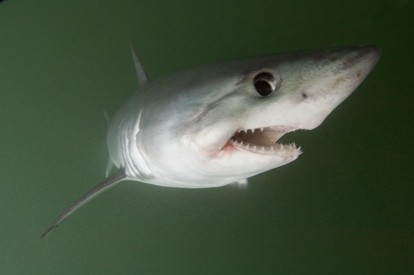EU Protects Porbeagle Sharks

Ocean News
The European Union has officially extended measures to protect threatened porbeagle sharks from fishing.
Noting the depleted conservation status of the species, the EU has recognised that previous levels of protection for this species were insufficient, because they did not apply to all European waters. Under the amended Regulation, fishing for porbeagles is now prohibited in all EU waters, including the Mediterranean Sea, and by EU vessels fishing in international waters. In addition, if porbeagles are caught accidentally, they must now be released immediately. "The protection of porbeagles by the EU represents an important step for the conservation of this species. However, given its highly migratory nature, if porbeagles are to recover, similar actions must follow at the international level”, declared Dr Allison Perry, wildlife marine scientist with Oceana Europe. Key fora for international protection of porbeagles are the International Commission for the Conservation of Atlantic Tunas (ICCAT) and the Barcelona Convention. Meetings for both ICCAT and the Barcelona Convention are to be held in November 2011, providing critical opportunities for the future of this species in the Atlantic Ocean and the Mediterranean. The porbeagle is a large, warm-blooded, wide-ranging shark that is highly valued for its meat and fins. Threatened primarily by decades of over-exploitation, porbeagles have undergone severe population declines and are considered to be Critically Endangered in the Northeast Atlantic Ocean and Mediterranean Sea. Because they are relatively slow-growing, late-maturing, and long-lived, they are very slow to recover from depletion. A stock assessment of porbeagles in 2009, carried out jointly by scientists from ICCAT and the International Council for the Exploration of the Sea (ICES) concluded that no targeted fishing or landings of these sharks should be permitted, and that even with no fishing, the porbeagle population in the Northeast Atlantic would take up to 34 years to recover. In the Mediterranean, porbeagles are estimated to have declined by up to 99% since the mid-20th century. Photo courtesy of ArKive.com


